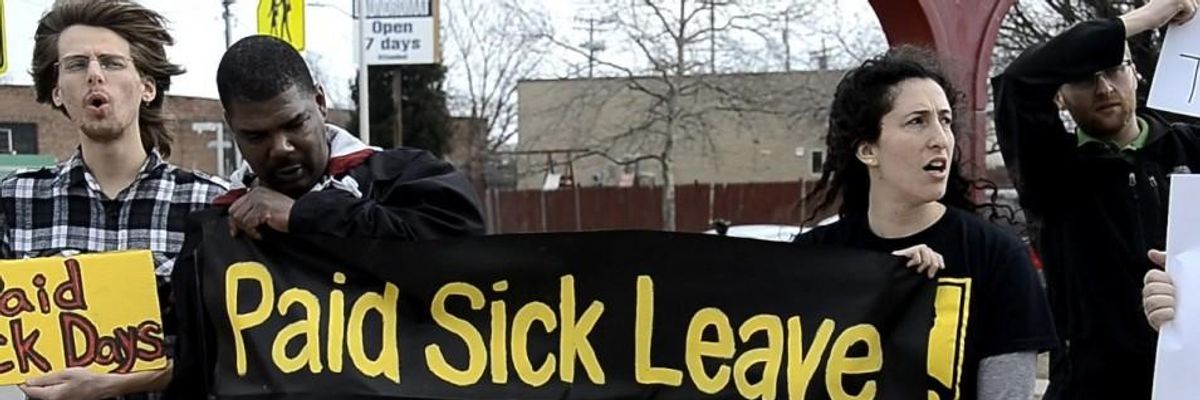The COVID-19 pandemic highlights the vast inequalities in the United States between those who can more easily follow the Center for Disease Control's recommendation to stay home and seek medical attention when needed and those who cannot. High-wage earners are more likely to be able to stay home and have health insurance to seek medical care than low-wage earners. And, those in certain sectors--e.g. information and financial activities--are more likely to have paid sick days or can work from home than those in other sectors--e.g. leisure and hospitality. COVID-19 also sheds light on another difference in economic security and access to medical care among workers: the benefits to being in a union.
Union workers are more likely to have access to paid sick days and health insurance on the job than nonunion workers. The figure below shows the significant differences in those rates using the National Compensation Survey.
Only two-thirds of nonunion workers have health insurance from work compared to 94% of union workers. Having health insurance means workers are more able to seek and afford the care they need. We know in that the United States, millions of people delay getting medical treatment because of the costs. Without health insurance, many do not have a regular source of care and simply won't go to the doctor to get the attention and information they need to not only get better but reduce the spreading of disease.
Union workers are also more likely to be able to stay home when they are sick because they are more likely to have access to paid sick leave. 86% of unionized workers can take paid sick days to care for themselves or family members while only 72% of nonunion workers can.
Having a union allows workers and their families access to more tools to help them withstand the coronavirus pandemic. Union workers are more likely to be able to stay home and seek medical care, which will help strengthen their communities by being less likely to spread the virus.

